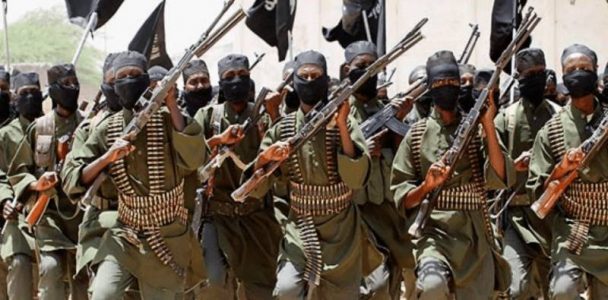
Jamaat-e-Islami accused of having links with Al Qaeda
Accusing Jamaat-e-Islami of having ties with militant groups, Muttahida Qaumi Movement chief Altaf Hussain demanded that the federal government ban the party.
“The Jamaat-e Islami has strong links with the al Qaeda and the Taliban. Its activists are being killed in drone attacks. Therefore, cases should be initiated against the party and it should be banned,” said Altaf Hussain, addressing a general workers’ meeting at the Lal Qila ground, Karachi, on Tuesday.
The party leader accused JI’s chief Munawar Hasan of being the first in charge of the infamous thunder squad and said that he was close to the TTP’s slain chief Hakimullah Mehsud.
During Altaf Hussain’s speech, the party workers distributed a list of activists associated with the Jamaat-e-Islami and its student wing Islami Jamiat-e-Talaba, who were either killed in drone attacks or were arrested in different terrorist activities. Referring to the ruckus created by IJT students in Lahore, Altaf said that they were released without any charges a day after being arrested. “The Jamiat does as it pleases and no one takes any action against them.”
An intelligence agency has detained six members of al Qaeda’s suicide squad, their local handler and two of their technical collaborators.
Out of seven al Qaeda members, four have taken special jihadi training in Miramshah, headquarters of North Waziristan Agency, while the other three are also experts in different fields with five having expertise in information technology/communication, improvised explosive devices (IED), diploma associate engineer in automobile technology and media coordination.
The detained collaborators are local shopkeepers from an electronic market. They allegedly provided the electronic gadgets, used in suicidal missions, sources familiar with the matter told The Express Tribune.
From their physical appearance it is clear that some of the detained men are foreigners though the others are drawn from the provinces of Sindh, Punjab and Khyber-Pakhtunkhwa (K-P).
Investigators have also unearthed a workshop where members of the squad would test out their instruments of death and destruction.
While their handler resided in Punjab University (PU) Hostel, the remaining members lived in different urban areas in Lahore.
The arrest of the handler was made after another squad member, who often visited PU Hostel, met his boss (handler) for giving updates and seeking more instructions.
Armed with this information, the intelligence agency placed the handler under surveillance and noted that when other students of the hostel left their rooms to attend their classes, this suspect remained present in his room.
Sources said that the handler was detained soon after his aide was apprehended.
Pictures of Aafia Siddiqui and other al Qaeda leaders were discovered from the handler’s room in PU hostel, reinforcing the suspicion that the man detained was an al Qaeda figure.
During the course of interrogation, it was revealed that the squad members had succeeded in preparing an explosive suicide vehicle (a car) which is still present in Lahore at an unidentified location with a fake licence plate. Though the vehicle poses a potential threat to citizens, it hasn’t been impounded by law enforcement agencies as yet.
The operation was conducted by a premier intelligence agency whose operatives picked up another member of al Qaeda “Fidayeen” mission on September 3 from a room of Punjab University Hostel No 1.
The militant, after the initial raid seemed to be an Arab national who arrived in Lahore for leading a “Fidayeen” (suicidal mission) about three weeks ago and was allegedly provided shelter by the Islami Jamiat Talba (IJT), the student wing of Jamaat-e-Islami (JI). But the man was actually a resident of K-P.
The university had allotted a room to a Statistics Department student Ahmed Sajjad, who allegedly had an association with the IJT.
The university is considered a stronghold of the IJT — which has denied any link with the arrested suspect. “We had not given shelter to any suspected terrorists,” IJT spokesman Abdul Moqeet said.
Sources said the arrested youth was allegedly involved in subversive activities in Pakistan’s tribal areas and had come to Lahore to lead a mission.
Sources said Ahmed Sajjad had been an activist of a student organisation in the past but it had disowned him, adding that Sajjad was an MS student at the PU College of Statistical and Actuarial Sciences. They also said Sajjad was not present at the time of the raid.
Sources in the intelligence agency, however, confirmed that during initial interrogations, his link with al Qaeda has been established. They also claimed that the suspect was on a suicide mission.
A senior serving intelligence agency officer, who also led operations in which wanted al Qaeda figures Ahmad Khalfan Ghalani and Naeem Noor Khan alias Abu Talha were arrested, told The Express Tribune that JI has been directly and indirectly involved in providing accommodation to al Qaeda operatives in Pakistan.
Khalid Sheikh Mohammad, supposedly No 3 in the al-Qaeda hierarchy was arrested in March 2004, from the house of a women’s wing leader of the JI in Rawalpindi, while another al Qaeda leader Abu Zubaida was arrested in the same year from Faisalabad, and was given shelter by Jamaatud Dawa (JuD) and Lashkar-e-Taiba (LeT).
Source: Weekly Blitz





